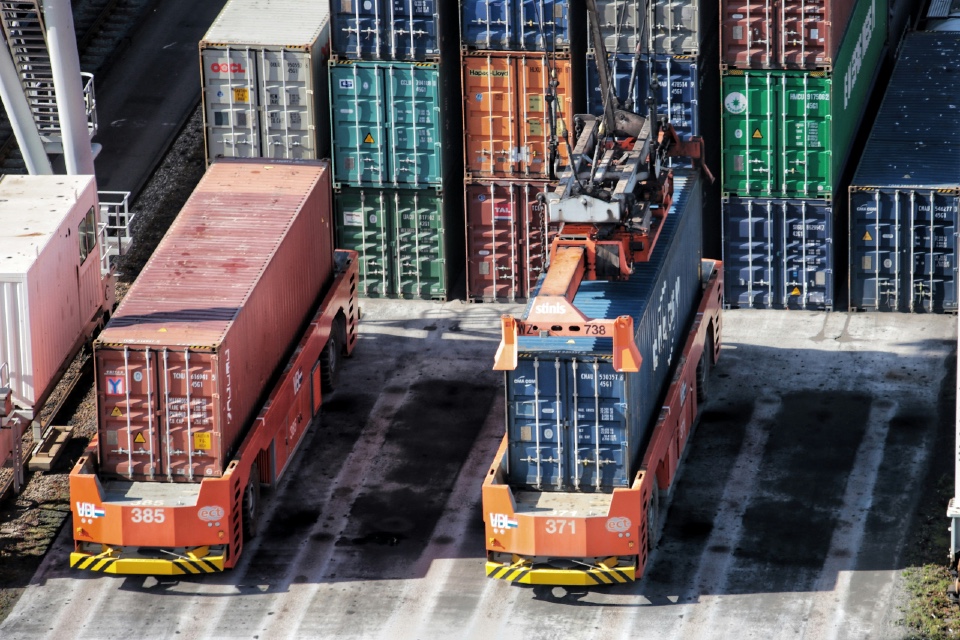Artificial Intelligence (AI) is revolutionising industries worldwide, and its impact on the logistics and supply chain sectors cannot be overstated. From streamlining operations to enhancing efficiency, AI-powered technologies are transforming how goods are transported, stored, and delivered.
This article explores the ways in which AI is impacting the logistics and supply chain sectors, revolutionising the way businesses manage their operations…
- Demand Forecasting and Inventory Management
AI algorithms are improving demand forecasting accuracy, enabling businesses to optimise their inventory management. By analysing historical sales data, market trends, and external factors, AI systems can predict future demand patterns with greater precision. This enables businesses to adjust inventory levels, reduce stockouts, minimise excess inventory, and improve supply chain efficiency.
- Route Optimisation and Fleet Management
AI-powered logistics systems are enhancing route planning and optimization, improving efficiency and reducing costs. These systems analyse factors such as traffic conditions, weather patterns, and delivery constraints to identify the most efficient routes. AI algorithms can also optimize fleet management by considering factors like vehicle capacity, fuel consumption, and driver availability, ensuring optimal resource utilisation.
- Warehouse Automation and Robotics
AI-driven automation and robotics are revolutionising warehouse operations. Autonomous robots equipped with AI algorithms can handle tasks such as inventory picking, packing, and sorting with speed and precision. AI-powered warehouse management systems optimise storage space, monitor inventory levels, and facilitate efficient order fulfillment. This automation improves accuracy, reduces labor costs, and enhances overall productivity in the supply chain.
- Supply Chain Visibility and Transparency
AI technologies provide real-time visibility and transparency across the supply chain. Through the integration of data from various sources, such as GPS trackers, sensors, and RFID tags, AI systems can track shipments, monitor conditions, and provide accurate delivery estimates. This visibility enables proactive issue resolution, better customer service, and improved decision-making throughout the supply chain.
- Risk Management and Mitigation
AI algorithms help identify potential risks and mitigate disruptions in the logistics and supply chain sectors. By analysing data from multiple sources, such as weather forecasts, social media feeds, and historical patterns, AI systems can predict and proactively address potential risks. This allows businesses to take preventive measures, adjust logistics plans, and minimize the impact of unforeseen events on supply chain operations.
- Enhanced Customer Experience
AI-powered technologies enhance the overall customer experience in logistics and supply chain operations. Personalized recommendations, real-time tracking, and delivery notifications improve customer satisfaction. AI-driven chatbots and virtual assistants provide prompt and accurate customer support, enhancing engagement and resolving queries efficiently. These technologies contribute to building customer loyalty and driving business growth.
The impact of AI on the logistics and supply chain sectors is transformative, revolutionizing traditional practices and improving operational efficiency. From demand forecasting and inventory management to route optimization, warehouse automation, and supply chain visibility, AI technologies offer unprecedented opportunities for businesses to streamline operations, reduce costs, and enhance customer satisfaction.
As AI continues to evolve, we can expect further advancements in the logistics and supply chain sectors, shaping a future where efficiency, speed, and reliability become the hallmarks of successful operations. Embracing AI-powered solutions will be crucial for businesses aiming to thrive in the ever-evolving landscape of logistics and supply chain management.







